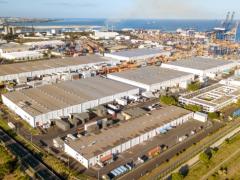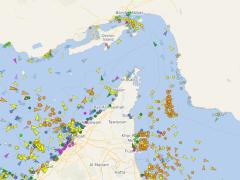A revised trade proposal to reduce the 30% unilateral tariffs imposed by the US since August 7 has been announced by the South African government.
Minister of Trade, Industry and Competition Parks Tau and Minister of Agriculture John Steenhuisen told a media briefing in Pretoria on August 12 that the latest proposal is a five-pronged strategy, focusing on:
- US engagement
- Export diversification
- Economic support
- Trade defences
- Local demand initiatives
“Cabinet has approved that South Africa submits a revised offer as a basis for negotiations with the US,” the government said in a statement.
“The new offer builds on the previous offer submitted in May 2025. The new offer substantively responds to the issues the US has raised in the 2025 National Trade Estimate Report.”
According to the statement, South Africa has already addressed sanitary and phytosanitary measures in compliance with the bio-security protocols affecting poultry, blueberries and pork as follows:
- Poultry: Market access under the conditional self-ban and self-lifting system will ensure that the US is able to leverage the tariff rate quota of 72 000 tons already agreed in 2016.
- Blueberries: Market access has been granted to states that are free of fruit fly with related mitigation measures.
- Pork: The market is open subject to bio-security requirements.
“Consequently, the USA-Africa Trade Desk has informed us that it will be shipping containers of poultry and pork to South Africa in two weeks’ time, which is testimony that these issues have been resolved,” Tau said.
“The shipments will come from the states of Georgia, Mississippi, South Carolina, North Carolina and Alabama through the ports of New Orleans in Louisiana, Savannah in Georgia and Norfolk in Virginia.”
Another significant request from the US was that South Africa considers reducing tariffs as a way to address the deficit and tariff disparity with the EU due to the SADC-EU Economic Partnership Agreement.
Tau said South Africa is continuing its consultations with industry and other members of the Southern African Customs Union to identify specific lines to respond to this request.
“A high-level negotiation team – including the Department of Trade, Industry and Competition and the Department of Agriculture – has been identified and is ready to engage the US towards a mutually beneficial agreement,’’ he said.
“Our goal is to demonstrate that South African exports do not pose a threat to US industries and that our trade relationship is, in fact, complementary.
“While the US is our third largest trading partner after the EU and China, South Africa is the 43rd export destination for the US and accounts for 0.25% of total US imports. It is therefore not a threat to US production.”
The US market accounts for about 4% or R9.8 billion (US$537 million) of South Africa’s total agricultural exports – an increase of 104% from 2018.
“Government is going to do everything possible to keep the American market open for our goods. We will, at the same time, accelerate our efforts to diversify markets and build on the efforts we have put in place to ensure predictability in trade and leverage all our existing partnerships to secure markets for our products,” Tau said.
Steenhuisen said animal scientists have highlighted the risk of porcine reproductive and respiratory syndrome (PRRS) disease and government has implemented safeguards to prevent its entry into the country.
“We require that certain glands be removed from pork cuts to prevent exposure. Our pork sector is incredibly small and geared only towards domestic production. If it was wiped out through an outbreak of PRRS, we would face serious food security problems. This is not something we have thumb-sucked – the evidence is there from the World Organisation for Animal Health,” he said.
A self-imposed ban, related to outbreaks of highly pathogenic avian influenza, on US poultry imports to South Africa was an initial response to a non-trade barrier affecting access to the market.
“This issue was raised strongly by the US Trade Representative and has come up repeatedly in our interactions with the US,” added Steenhuisen.
“The self-ban and the self-lift programme we have offered alleviate any concerns that avian flu could be used as a trade barrier preventing the US from reaching its designated quota in South Africa.”
The South African government’s economic response package supports affected firms and includes the establishment of an Export Support Desk, which will serve as a direct point of contact for affected companies.
It includes the Localisation Support Fund, the Export and Competitiveness Support Programme and job loss mitigation efforts. The Block Exemption for Exporters is expected to be published on the Department of Trade, Industry and Competition website by the end of this week.
Tau said South Africa has also accelerated its efforts to diversify export markets, targeting the African Continental Free Trade Area, Europe, Asia (Japan, Vietnam and Thailand), the Middle East and India as the plan is “not just about trade numbers” but is “directly linked to job protection”.
Tau pointed out: “Proudly South Africa will intensify outreach with corporates and retailers through its online store and market access platform procurement tool targeted at the private sector to support increased domestic sales of products. The future export capability of the online platform will be used to assist with export market diversification.
“Government is going to do everything possible to keep the American market open for our goods. Ports like Durban and Cape Town may see redirected export volumes as negotiations unfold.”













